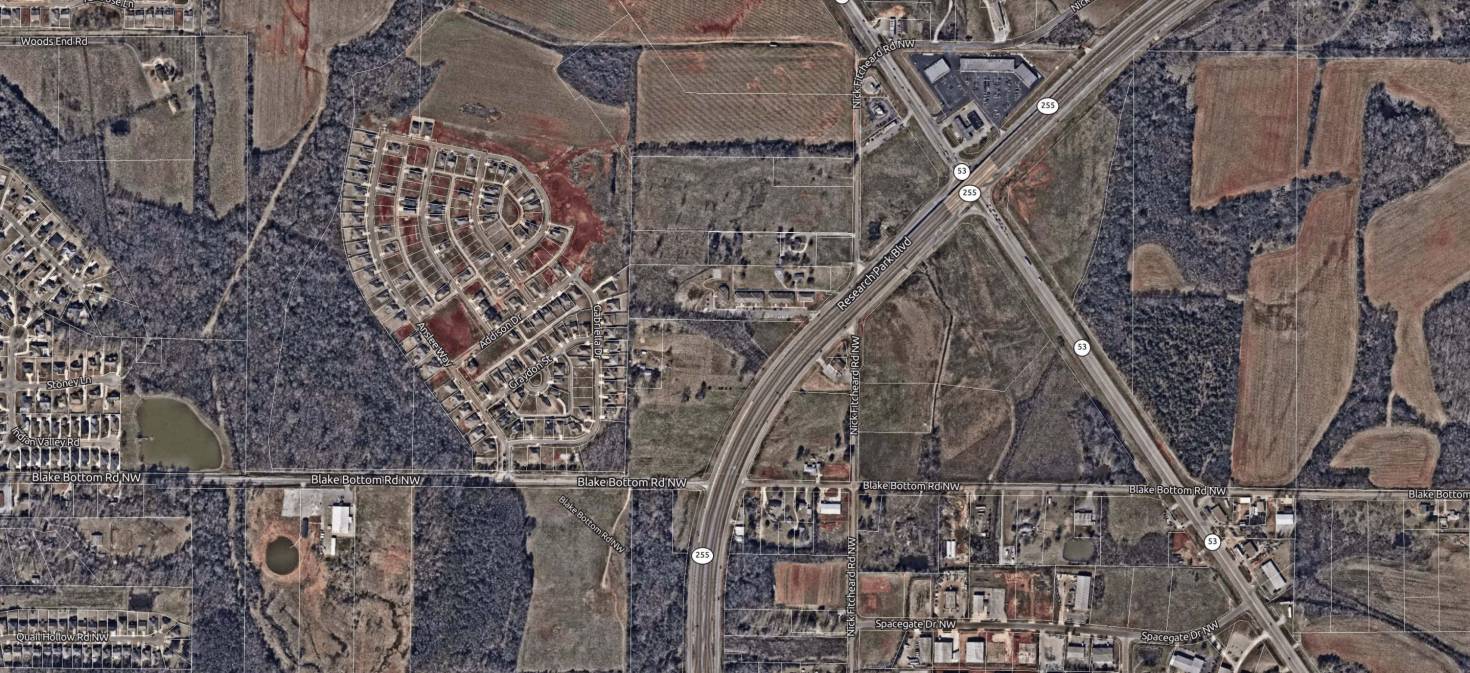Caveat emptor!... or buyer beware, is the principle that a buyer alone is responsible for checking the quality and suitability of goods before a purchase is made.
Auctions can be a great way to buy land for sale at a reasonable price, sometimes even pennies on the dollar. Just like with many pursuits in life and most any type of real estate transaction, there are some definite pros and cons to be aware of. These could include anything from limited competition, less haggling, and the opportunity for great deals to possible no sales, lack of knowledge about the land, or risking the price being jacked up.
Your average person wants to invest in the best deal possible while minimizing the risk involved as much as possible. Simply put, lower risk and bigger rewards. So what is the solution? How do you make sure you don’t make a big mistake buying property at a land auction?
The answer is simple and straightforward (which doesn’t necessarily mean easy)... do your homework. If the right type of research is performed before you get to the auction, it’s virtually impossible to get hurt on one of these deals simply because you’ll already know beforehand if you should pull the trigger or walk away.
The question is… what type of research and due diligence should be done before bidding at a land auction?
Personal objectives
One of the first points to consider is what the highest and best use of the property is. In other words, what would this piece of land be ideal for? Would it make a good lot for building a new home? Is it commercial land located strategically for a business? Is it farmland with fertile soil where crops could thrive? Is it a heavily wooded recreational property that's possibly good land for hunting or harvesting timber? To find out more about how different tracts of land are used, check out our post on understanding land use and property types. Another popular article discussing land usage is what's the difference between a farm and ranch?

The second half of this initial step is to envision what your own goals and objectives are and if you have the resources to execute them. Considering your goals and objectives is one of the biggest factors in determining if the land even makes sense for you to take a look at buying in the first place. If your intentions for the property don’t match up at all with the highest and best use, or if you don’t have the time and money to put into the project, it may be wise to walk away and search for a property that matches your capabilities.
Property taxes
This expense seems obvious but it’s one that commonly gets overlooked. People tend to focus on the purchase price and forget about the cost of the taxes. Since you’ll incur this cost the entire time you own the property, it only makes sense to do some research and find out what you’ll be paying out. Even though this amount will probably change year after year, you can look at the amount that was paid previous years and get an idea of what you’ll pay in the future. This can be done by looking at public records online and going to the courthouse and talking to the tax assessor.
Zoning
Zoning laws dictate what can and can’t be done with any given property. Not only does this relate to the highest and best use, but it directly relates to your vision of what’s going to happen with the land. If it's a residentially zoned property you may not be able to build office space without getting the property rezoned. And there’s always a possibility you could be unsuccessful in getting it rezoned even if you feel like you have a solid case. For more information on rezoning, take a look at this post detailing the process of how to rezone land. The point is, make sure you can do what you intend to do with the land.
Clear title
It’s easy to get caught up in the excitement of being a new landowner and forget about possible hidden problems that can come back to bite you in the future. A great example is the title of the property to be auctioned. It’s vital to do a title review and research the history of the property’s ownership to prevent running into any unexpected surprises you’ll have to dig your way out of later. You might be surprised at how many people have sold properties they didn’t actually own, so you’ll need to know if there’s any liens or encumbrances associated with the land.
Experience
Actually visiting the property can be a game-changer. Looking at an array of pictures online or even using online tools is one thing, but experiencing the land yourself can be quite another. It could completely change your perspective on what’s really going on and let you know that the idea you have in your head isn’t reality. You could step foot on the property and it actually turn out to be in a lot better shape than you thought, or on the other hand, it could be a whole lot worse. In the digital age, there are some experienced land investors such as Seth Williams with REtipster and Mark Podolsky, aka "The Land Geek," that have become successful buying land for sale without ever seeing it in person, but this takes expertise and help from some outside sources. It’s a good idea to get on the property and experience it for yourself.

Be wary of the company you keep for they are a reflection of who you are, or who you want to be.Kenneth Ortiz
The future
Although he’s obviously talking about people and relationships, this concept is true in many types of relationships, even real property. A huge component of vacant land and real estate, in general, is location. Location plays a major role in value and in the formula for finding out the highest and best use. So keeping with Mr. Ortiz’s insightful quote, it’s a must to check out the adjoining properties. What types of properties are they and who owns them? Neighbors can be potential buyers in the future because oftentimes they’re interested in buying a property located beside theirs. It’s also helpful to research statistics and probabilities about the whole area. What’s the economy like? Will this ever be in the path of economic growth and be significantly more valuable down the road?
Market value
One of the keys to being successful at auctions is discipline, and knowing how and when to be disciplined comes from research. Although land data is not as readily available as traditional real estate data, a lot of it is out there, and it’s only becoming more available as technology advances. It’s necessary to dig as much as you can to find out at least a ballpark estimate of what the market value of the property is, especially if you can find a few comps. This is to ensure you don’t get burned by overpaying. For more information on how to find the market value of land, check out our blog post. A lot of this can be done online, but as a last resort, you can get a surprising amount of data by getting out and asking owners and experts questions. You may also be interested in our article discussing cheap places to buy land.
Once you feel reasonably comfortable with a land value, it’s wise to come up with a “the absolute most I’m willing to pay” number and stick to it. When the mind and emotions get involved, before you know it you can get swept away in a bidding war and overshoot the mark by a long shot.
Surveys
Topographical, environmental, or any type of land survey can instantly tell you a lot about a property that you may not be able to get anywhere else. There’s no guarantee any surveys will have been performed, especially recently. But if there has, get your hands on them because they can be a valuable resource in the due diligence process and give you insight into information like soil types, boundaries, and drainage.

Redemption periods
If the land is being auctioned due to delinquent taxes, it’s possible the current owners could be granted a redemption period after the sale. Essentially, this means they’ll be given a certain period of time to pay their taxes and if they do, they keep the property. The length of the redemption period varies from state to state. Some states have very short redemption periods. Others have very long redemption periods. Normally, even if the owners don’t pay, you can’t take possession until the redemption period expires. Don’t worry… if they do pay, you’ll get your money back plus interest.
Auction rules
To play the game well, you’ve got to know the rules. There are different types of auctions and along with them comes different rules. The preparation process isn’t just confined to the property but also becoming crystal clear on how the auction process will work. Some auctions require bidders to pre-register to ensure they are compliant with all the requirements while others may not. Certain auctions may require a minimum deposit while most all will require an acceptable payment method like a cashier’s check. Most of the auction companies have sites nowadays that lay out all the terms and conditions very clearly. The bottom line is to know and understand the rules and terms of any transaction beforehand.
There are 3 common types of auctions you’ll see in real estate.
- Minimum bid is when the seller sets a minimum dollar amount the bidding must reach for the property to be sold. Even if there are bids, if they aren’t as high as the minimum, the land won’t be sold. Often the bidding starts lower than the minimum bid.
- Reserve bid seems similar to minimum bid but is actually different. This is when the seller has a minimum reserve price in mind but in many cases didn’t publish it. Ultimately he has the right to reject any and all bids if he chooses to.
- Absolute bid is when the seller has agreed to accept the highest bid for the property no matter what. This is usually a sure-fire way to sell the land quickly and used by highly motivated sellers.
If you’re a history buff, you might really enjoy our post about the history of auctions and how they’ve evolved throughout the centuries. You might be surprised what all has actually been auctioned in the past.
This research won’t make you an expert in land, real estate, or anything for that matter. It could be the difference in making a smart purchase, wisely walking away, or digging a hole it may take years to climb out of. A successful strategy used by land buyers has been to make a checklist where certain questions have to be answered before they're willing to make an offer. If this is something you’re interested in, check out our article revealing 20 questions land buyers need to ask before buying land. For a general guide on purchasing land, take a look at our blog detailing how to buy land. Vacant land tends to be an overlooked niche in the real estate market which means there’s the potential for making a great investment with very little competition in the way.

One of the beneficial aspects of this day and age is you can do a lot of real estate investigating and due diligence online. A lot of it can be done in your recliner if you know what you’re doing and where to look. Taking advantage of tools like Google Earth can be extremely useful. If you’re searching for upcoming real estate auctions you can discover a diverse list across the U.S. in our land auctions. Benjamin Franklin said, “By failing to prepare, you are preparing to fail”, so do your homework and good luck bidding.

